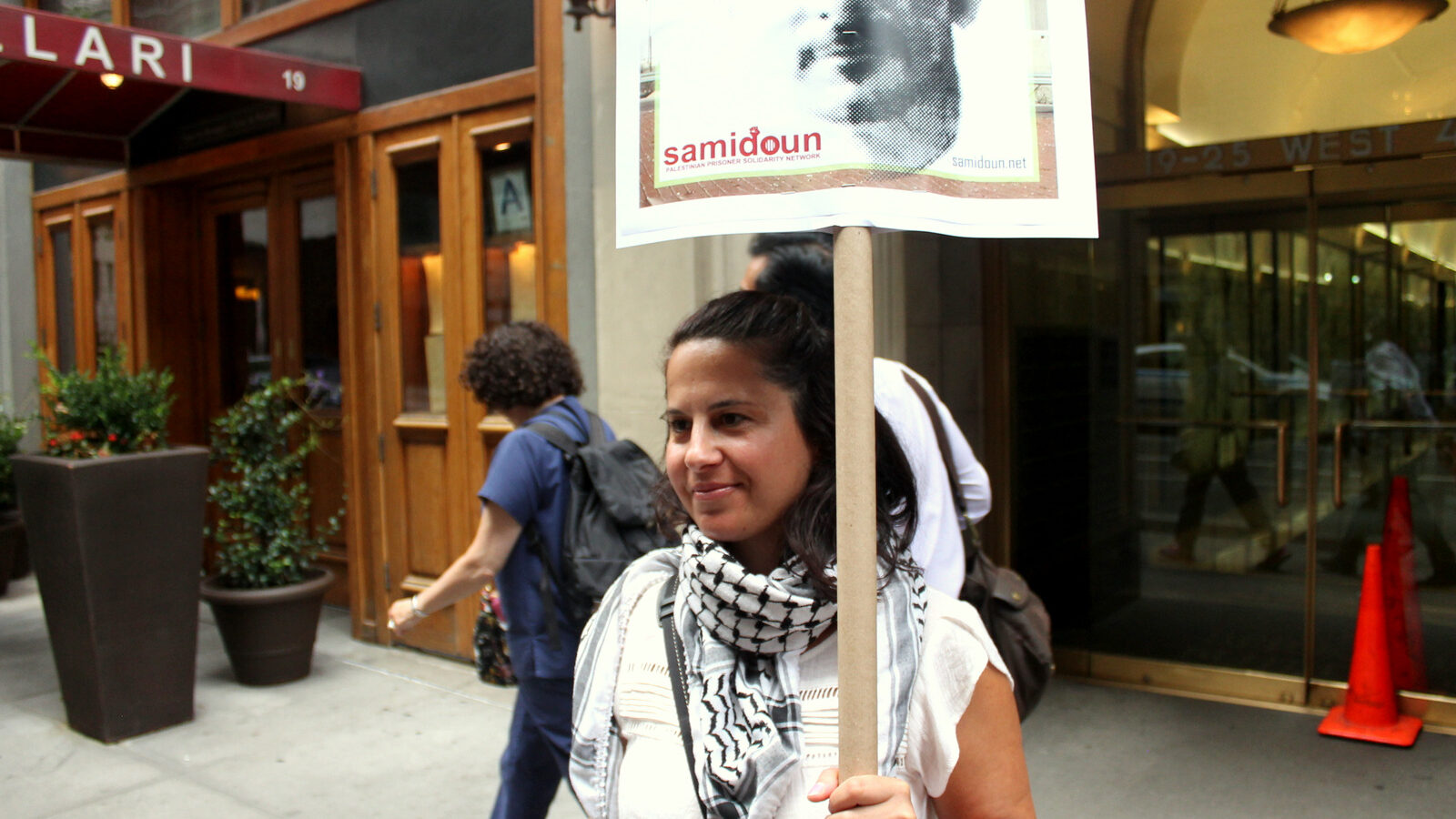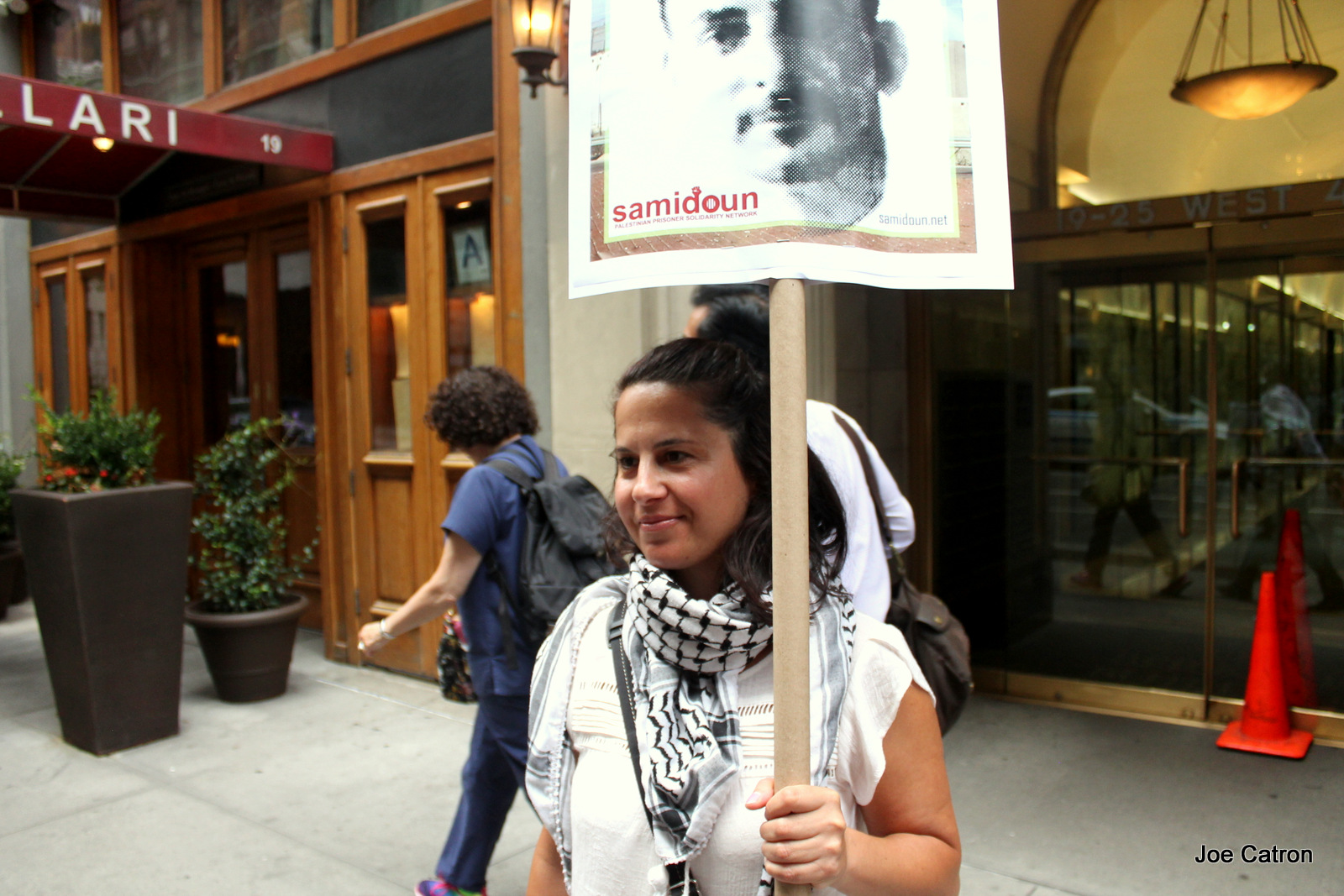
NEW YORK — Demonstrations around the world have demanded that Israel free Bilal Kayed as the imprisoned Palestinian, who has been on a prolonged hunger strike against his “administrative detention,” faces new Israeli threats of forcible treatment if he loses consciousness.
“Activists in Palestine are fully aware of what is going on at the international level and it is very encouraging,” Sahar Francis, executive director of Addameer Prisoner Support and Human Rights Association, told MintPress News.
“We also try to inform him and the prisoners inside of these activities,” Francis said.
Farah Bayadsi, an attorney for the Ramallah-based group, which offers legal representation to Kayed and other Palestinian prisoners, visited him Monday inside Israel’s Barzilai Medical Center, where his jailers transferred him on July 17.
“On his 55th day on hunger strike, Bilal is still shackled to his bed with his right hand and left foot,” Addameer said in a statement after the visit.
https://twitter.com/IRP1916/status/761350186476109826
“He is suffering from pain in the chest pain, kidney, jaw, eyes, ears, legs, as well as severe headache,” the group reported. “He also suffers from blurred vision, numbness throughout the body, hair loss, as well as yellowness and peeling of the skin.”
Addameer also said Kayed told Bayadsi “the doctor following his case informed him that he is entering a very critical stage due to loss of fluids, and salts in the body and that he is suffering from dehydration,” and if “he loses consciousness, he would be forcibly treated.”
‘Dangerous new precedents’
Kayed, a member of the Popular Front for the Liberation of Palestine and a leader in the group’s prison bureau, was convicted by an Israeli military court of participation in resistance activities following his capture at the height of the Second Intifada in 2001.
Long scheduled for release on June 13, 2016, Kayed instead received an “administrative detention” order the morning he expected to leave prison.
The document, issued by an Israeli military commander, extended Kayed’s 14-and-a-half-year sentence by six months. This extension came without charge or trial and is subject to indefinite renewals.
“If we don’t fight this decision today, then it will hang over every imprisoned Palestinian like a sword of Damocles,” Abbas Ali, chair of Innovative Minds, told MintPress.
The London-based group, which organizes regular demonstrations in support of Palestinian prisoners, held a protest to demand Kayed’s release outside the International Committee of the Red Cross’ London mission on Aug. 5.
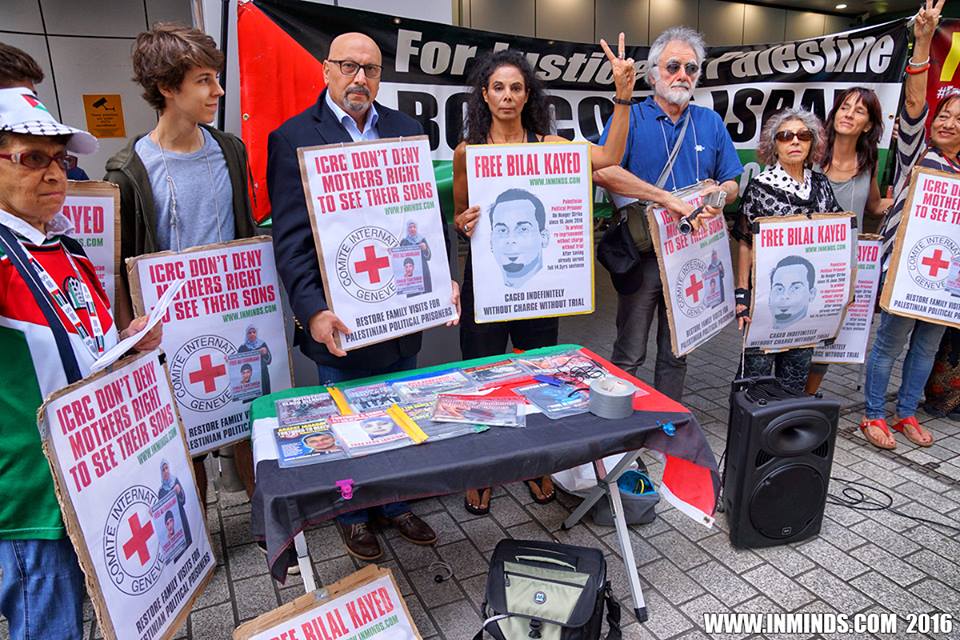
“There are certain crimes the occupation perpetrates that, if left unchallenged, set dangerous new precedents for all Palestinians,” Ali said. “Former prisoner Omar Zayed’s assassination in Europe was one such example, and today, we have the arbitrary caging of Bilal Kayed.”
Many fear Kayed’s “administrative detention” heralds a new Israeli tactic of refusing to release Palestinian prisoners as their sentences end.
‘An important arena to resist the occupation’
Others see his hunger strike, which started June 15 and has inspired solidarity fasts by over 100 other Palestinian prisoners and drawn support across party lines, as an important measure of struggle among 7,000 Palestinians held by Israel on political charges.
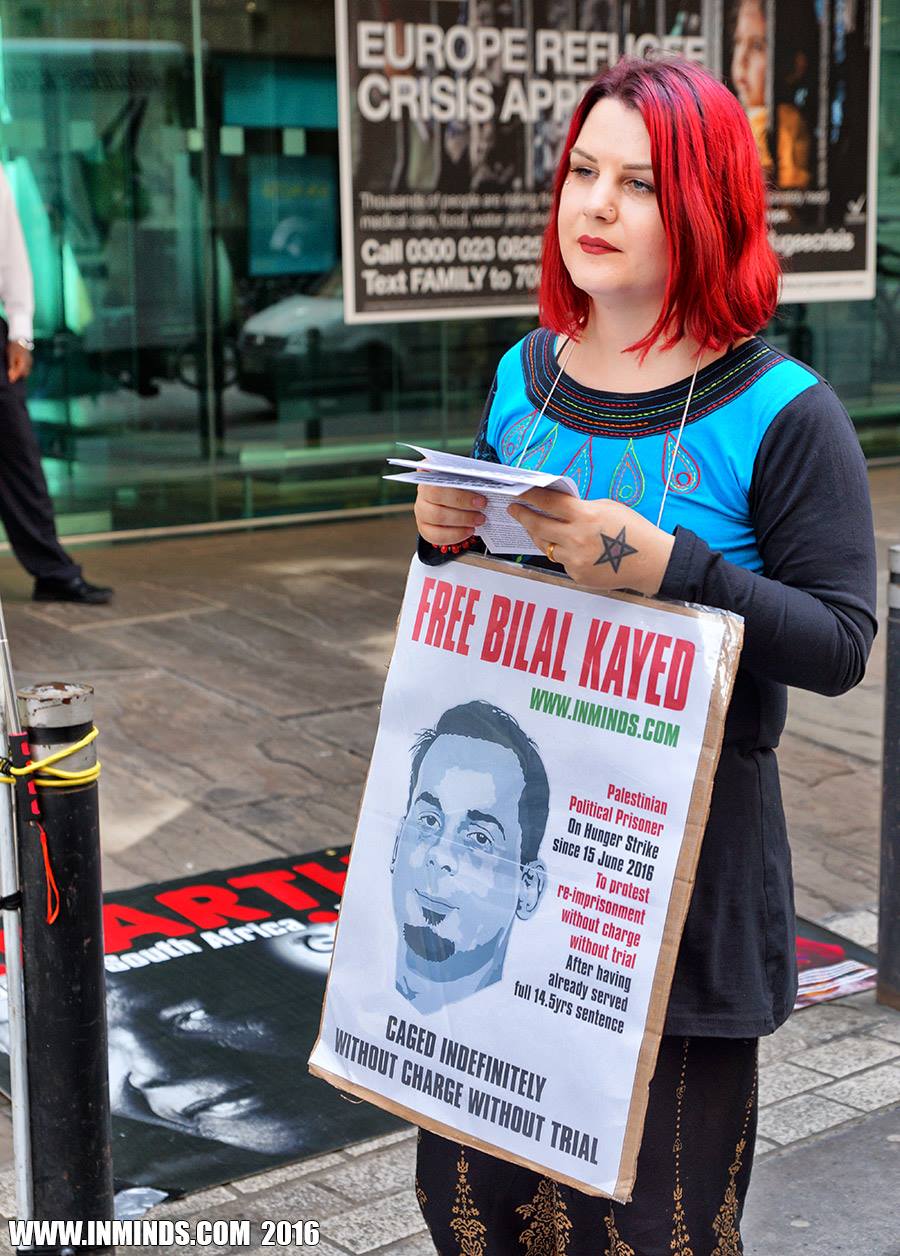
“When other methods to fight are longer possible, the prisons remain as an important arena to resist the occupation,” Patrik Paulov, international editor of Proletären, told MintPress.
The newspaper’s parent organization, the Swedish Communist Party, and its Communist Youth League held a meeting to support Kayed in Lysekil on July 23.
“Israel’s imprisonment of Palestinians clearly shows what the occupation is all about,” Paulov said.
“It shows how Israel deprives Palestinians of all human rights, and that they, as an occupier, can do exactly what they want to the occupied people.”
Toby Harbertson, a member of the United Kingdom’s Revolutionary Communist Group, also called Kayed’s hunger strike a crucial sign of struggle in its own right.
“The decision of Kayed and his comrades to go on hunger strike to expose and oppose the treatment of Palestinian political prisoners is a symbol of the continuing Palestinian resistance in the face of Israel’s occupation, and inspires all of us fighting in support of Palestinian national liberation, and against imperialism, oppression and war,” he said.
The RCG organized demonstrations for Kayed in Manchester on July 9 and 30.
Dan Cirrincione, a member of New York City Students for Justice in Palestine, which protested for Kayed in New York on July 25 as part of a global day of student actions, agreed.
“We have an obligation to support those on the front lines of resistance against the Zionist colonists, like Bilal Kayed and the rest of the prisoners’ movement,” he said.
Cirrincione added that Kayed’s struggle resembles others NYC SJP activists have supported inside the United States.
“It is equally important for the Palestine solidarity movement to campaign for the release of those who have sacrificed their whole lives to liberation struggles within the U.S.,” he said, mentioning prisoners like Mumia Abu-Jamal, the MOVE 9, “and dozens, if not hundreds, of others.”
![Palestinians have protested across the West Bank in support of hunger-striking prisoner Bilal Kayed [EPA]](https://www.mintpressnews.com/wp-content/uploads/2016/08/0e35d96b209846d9bdb15b06b5896656_18.jpg)
Irene Clausen, of the Copenhagen-based Internationalt Forum/the Middle East Group, which plans a protest for Kayed on Aug. 17, called the move “very provocative.”
‘Like South Africa was boycotted’
As Kayed’s hunger strike nears its 60th day on Saturday, other protests in support of his demands have occurred across Palestine and in Amman, Jordan; Arklow, Ireland; Athens, Greece; Belfast, Northern Ireland; Berlin; Cairo; Dublin; Enniscorthy, Ireland; The Hague; Istanbul; L’Aquila, Italy; Milan; Montreal; Naples, Italy; Philadelphia; Rabat, Morocco; Sydney; Tampa, Florida; Vienna; and Wicklow, Ireland.
The Naples city council even declared Kayed an honorary citizen on Aug. 4.
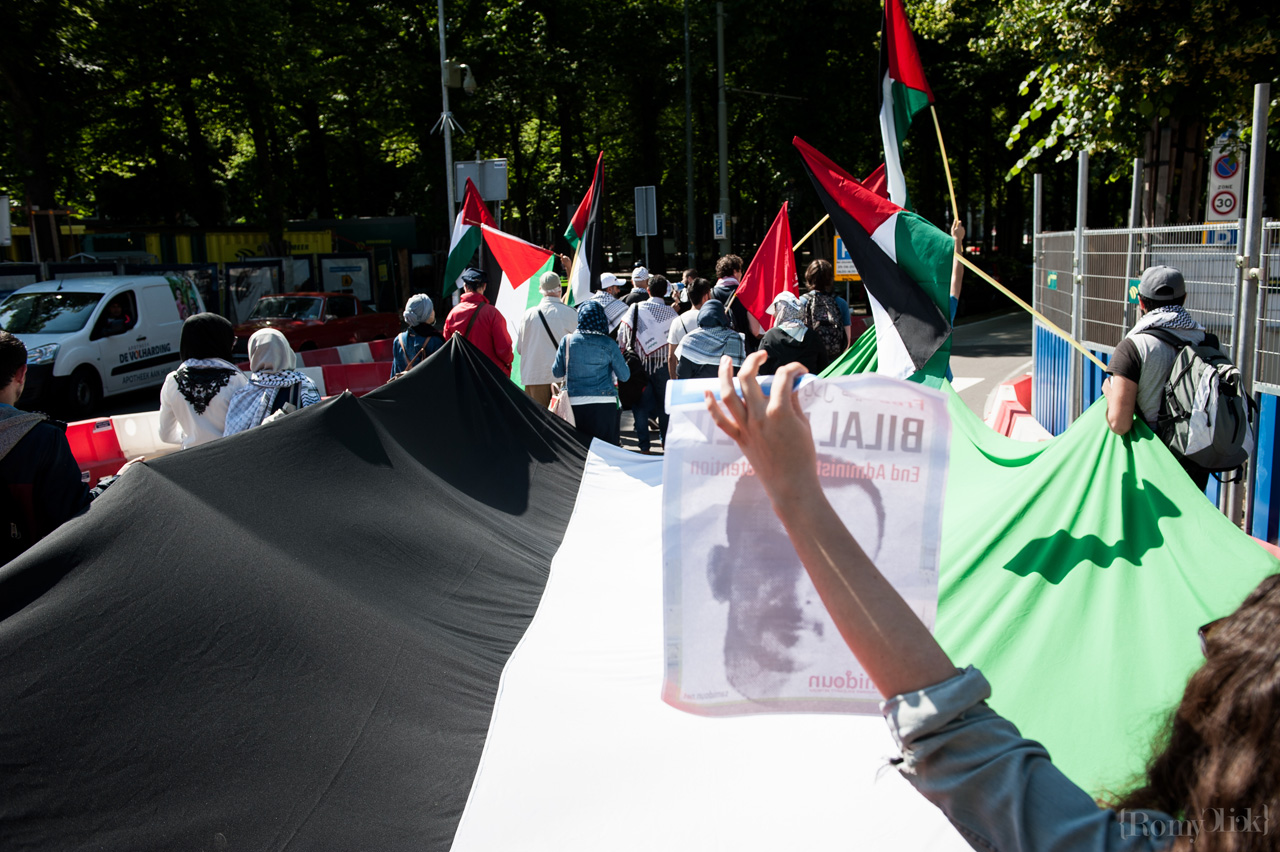
“On the international level, there are more people now aware of the campaign to free Bilal Kayed and his ongoing hunger strike throughout the world and a growing number of people and groups involved in building the campaign,” Khaled Barakat, international coordinator of the Campaign to Free Ahmad Sa’adat, told MintPress.
Sa’adat, the imprisoned general secretary of the PFLP, has joined Kayed’s fast along with more than 100 other Palestinian prisoners.
But Barakat added that popular support for Kayed had not affected the positions of well-heeled international groups.
“We are hearing nothing from the large human rights organizations,” he said. “We hear nothing from Amnesty International or Human Rights Watch. The ICRC is cutting family visits while Palestinians are striking for freedom.”
International mobilization remains vital not only to pressure these institutions on Kayed, but also to forge greater support for Palestinians overall, according to Paulov, of the Proletären newspaper.
“Solidarity is vital not only for the Palestinian prisoners on hunger strike, but for all the Palestinian people,” he said. “One of the most important acts of solidarity we in the West can do is to push for a boycott of Israel, like South Africa was boycotted during Apartheid.”


